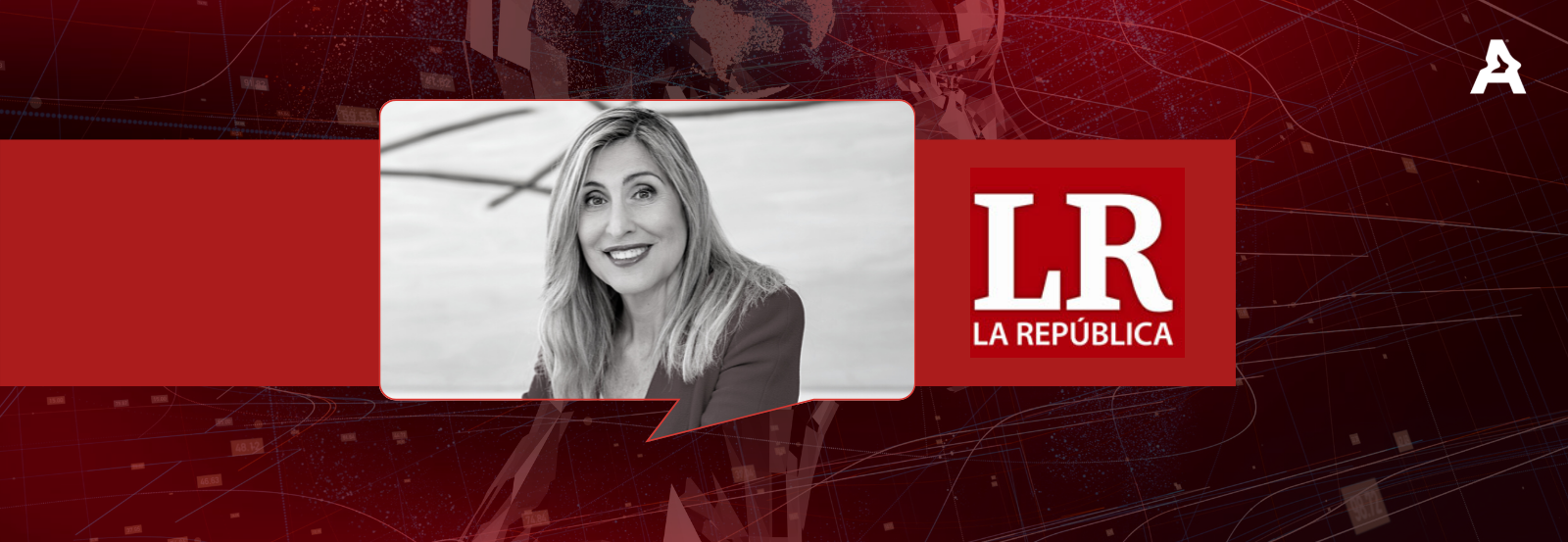
La República, one of Colombia’s most important economic and financial newspapers, published the latest article by the president of ATREVIA, Núria Vilanova, titled Evolutionary leadership in a new context. The world is accelerating. New technologies and values are transforming how we inform ourselves and make decisions. We are no longer innocent. In the past, we took for granted that everything on television was true. Today, 85% of people believe that there is a deliberate intention to manipulate them through social networks. More and more people are opting for information poverty, renouncing the media and replacing them with family and friends. Thus, WhatsApp becomes their first source of information, the main reason to share content that no one verifies coinciding with what they think: a fertile ground for fake news.
Moreover, the post-pandemic and geopolitical situation is forcing us into a social crisis in which, for the first time, we can no longer say that we are always moving forward for the better. And leaders have to learn to manage an unprecedented scenario of mistrust and uncertainty. What are the keys to this evolutionary leadership?
The most important thing is to connect with reality, offer answers and manage our innermost emotions. A personal situation caused me to be asked by a relative: “How could you forget about me? From that experience, I learned that every leader must prevent anyone affected by our organization’s activity from asking that question. In this way, we will curb that phenomenon (the great resignation) that makes many workers, after the pandemic, reorder their priorities and say enough is enough. Employees must be on our side because, in addition to doing the company work, they are its best and most credible spokespeople.
Moreover, leadership must be shared. We will only survive if we build and act as a plural, diverse, transversal, and multidisciplinary team capable of identifying the concerns of our stakeholders.
This leadership also involves adapting the corporate purpose to our organization’s activity that best connects with society as a whole: it is not the same to have the garbage service concession as to promote recycling and the circular economy. But always with sincerity. If sustainability is only marketing, it ends up generating disengagement and disconnection.
Ultimately, in a hyper-connected society where everything happens in real-time, the leader must know how to choose the right moment. Let’s not forget that, during the covid confinement, crowds went from going out to the balcony to applaud to banging pots and pans against the leaders. Leadership built on these foundations will be able to connect and mobilize communities, driving co-creation processes and making them part of our project.
A practical example: a few months ago, a Domino’s Pizza employee denounced her working conditions live and quit. We can never prevent such images, but we can prevent them from going viral. There was a lack of leadership. The company reacted late and through a press release when the response should have been hundreds of employees sharing in those same networks the pride of working on that project, suppliers supporting the company, and customers happy with the service they receive. That is mobilizing communities.
In conclusion, today’s society does not ask its leaders to be perfect. It asks them to be transparent and coherent, diligent and fast, and close and empathetic when solving problems. And all this requires a first step: listening. Because no matter what happens, we continue to learn from people, the strongest foundation of all leadership.
Click here to read the full article originally published in La República.